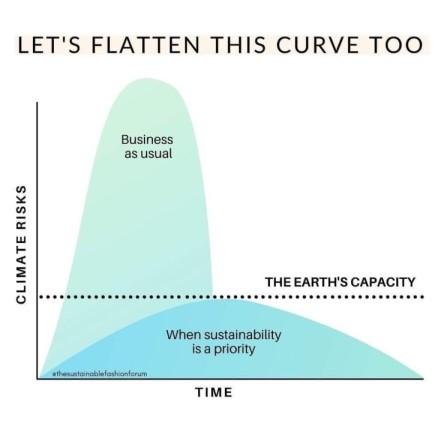Under the Energy Transition programme at the Sustainable Finance Lab, we employ economic knowledge and models to better understand the transition process towards a low carbon economy. We keep an eye on the changing world around us and strive to participate in building a better future for everyone. Many impacts of the current Corona crisis are still uncertain. What is certain however, is that the world as we knew it is not going to be the same. The crisis will induce social, political, economic and financial impacts that will certainly affect all aspects of our lives. Our plans and priorities will shift and will drive a new reality for the transition process towards a low carbon economy. The current Corona crisis induced in a very short time span several developments that mimic those expected under the energy transition process. This provides a rare opportunity to draw some lessons from this crisis that can be used to better understand the possible effects of the transition we aspire to achieve.
The impossible is possible
We have taken our daily routines for granted and our ability to imagine a different way of doing things was halted by the fear of change. The most important lesson that Corona teaches us is that mankind is capable of huge behavioral change and transition overnight. Anyone claiming that we cannot manage climate change after Corona should be put in quarantine.
Global nature of the crisis requires global collaboration
The global health crisis showed the necessity of a regional and global coordination in introducing and lifting economic restrictions and finding a vaccine as soon as possible. Without such collaboration, a second spread wave of the disease could emerge that could lengthen the lock down and have devastating effects on our economies.
Likewise, climate change is a global problem that requires global collaboration and the engagement of all countries in order to reach climate targets. Otherwise, we risk losing the fight and enter to a zone where no return is possible.
Flattening the spread curve of the virus has been the driver for the fight against it, but we need to flatten another curve as well in order to win the fight against climate change and avoid the collapse of Earth’s ecological capacity.

Climate change and public health
Another lesson from the current crisis can be from the potential health effects of climate change and how big the economic consequences of such effects can be. The decrease in the quality of the environment is highly correlated to health degradation and may even trigger the emergence of new cardiovascular, respiratory and other infectious diseases as a result of extreme high air temperatures and global pollution (WHO). The corona crisis presents real evidence on how a potential climate crisis could affect every aspect our lives and the way we run economies, which calls more than ever for an immediate climate action, along with putting the climate agenda on the top of our priorities.
Preview of global environmental quality under a successful transition
Even though the current crisis has a huge economic toll, the environment has never seen such a relief from emission levels since decades ago. The days that we are living in are a unique and exceptional opportunity to enjoy the environmental quality of a fossil fuel free world with electric modes of transport and sustainable production processes. No need to imagine that world, a glimpse of it is right outside!
The behavior of oil suppliers
One of the lessons that can be learned is the dynamics in the oil sector. The crisis drove down oil demand globally. This decrease in demand mimics the expected decrease under the energy transition. What is interesting however, is the response of the supply side. The price war between Saudi Arabia and Russia induced an increase in oil supply globally after failing to coordinate a common decrease in production. This unexpected direction forced an even sharper drop in oil prices which triggered budgetary deficits for many suppliers and threatened a premature stranding of Shale oil fields in the United States. Eventually, a truce was reached, and oil supplies were reduced.
An important lesson for the transition is: the necessity of coordination between oil suppliers and that stability of oil prices is a priority for producers, over increasing their supply, facing a reduction in demand. Accordingly, one can expect a reduction oil supply along the transition process.
Revisiting globalization
Globalization has many benefits that shaped our economies in the past years. However, the Corona crisis identified some of its flaws. Globalization was one of the reasons that facilitate the spread of the virus across the globe fast which prevented a timely response by authorities. Moreover, product specialization under international trade halted the supply of needed equipment during the crisis. One can expect that the globalization of goods and services will be revisited by many countries after the crisis, which could be done by maintaining national production lines for strategic goods, along with stockpiling of strategic buffers and stocks. This will have a direct effect on the flow of certain goods across the globe and will have an effect of the distribution of emissions globally, thus affecting the transition efforts by many countries. Countries should reassess their transition plans in light of such developments in order to assure the successful achievement of their climate targets.
These lessons from the Corona crisis have far reaching social, economic, financial and environmental impacts that will affect the transition process. The crisis teaches us the essential need to work together, highlights our incredible ability to deal with a rapid change, and calls for a necessary resetting of priorities to focus on our fight against climate change. The after-Corona world requires a new way of thinking that makes the best use of the current crisis in steering our response towards a sustainable direction without having to compromise an abrupt transition. This emphasizes the need to look at the transition process with a fresh eye that proposes innovative tools, models and solutions adopted to the new reality.


